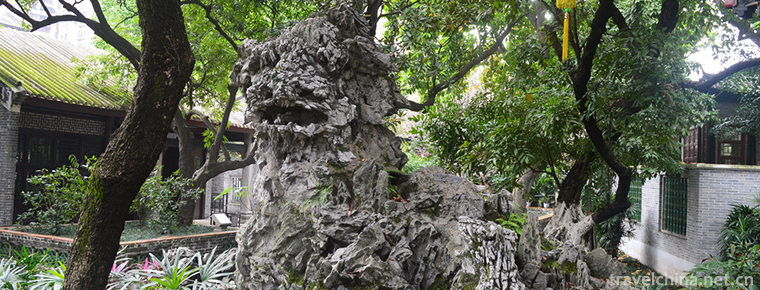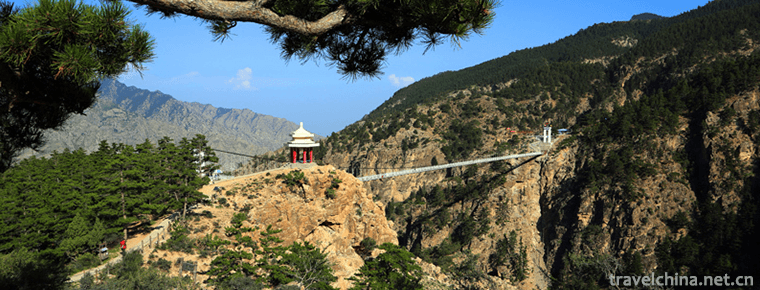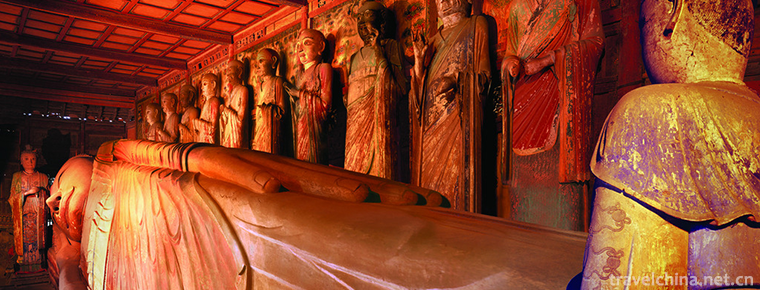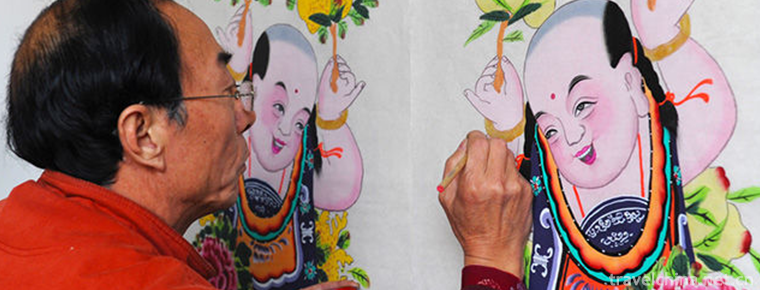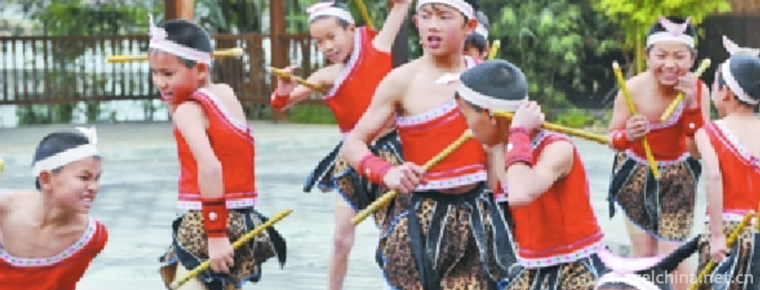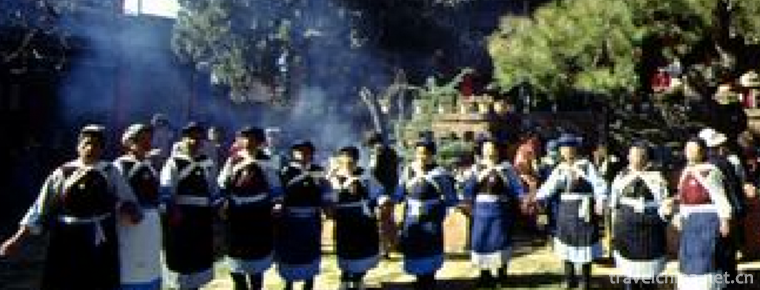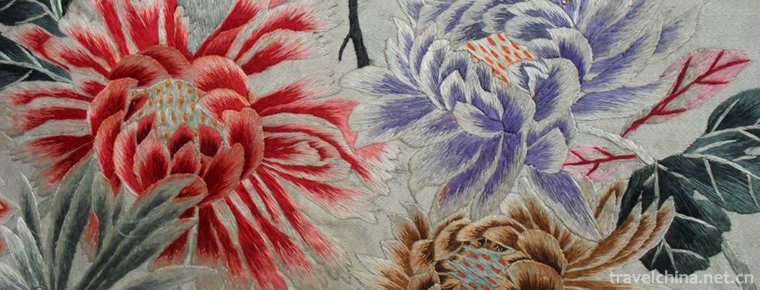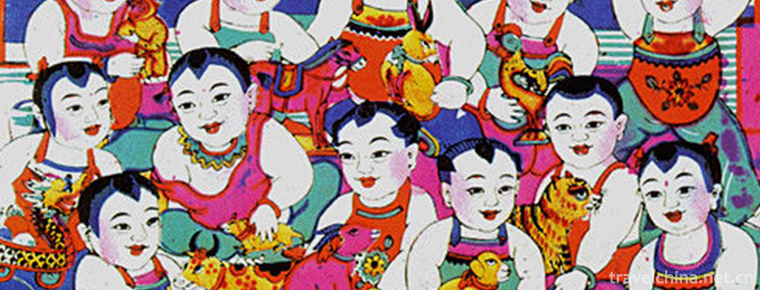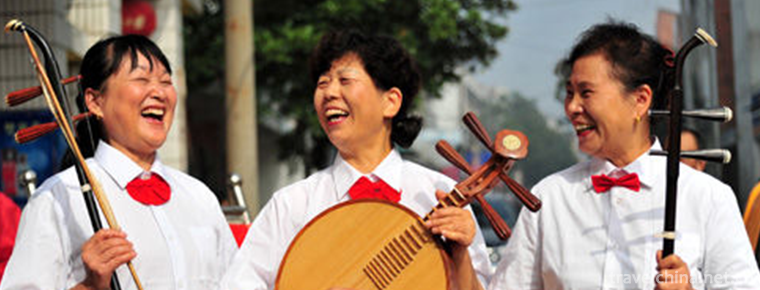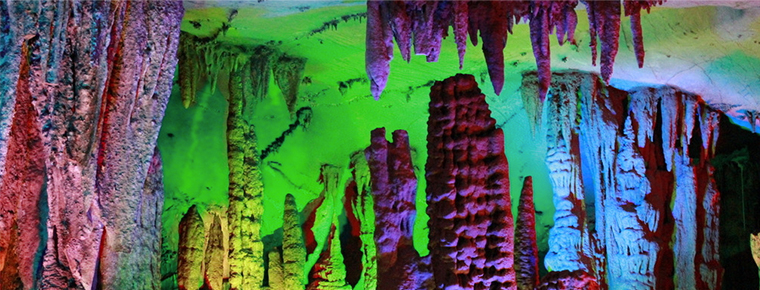Production Techniques of Buyi Medical Herbs for Benefiting Liver
Production Techniques of Buyi Medical Herbs for Benefiting Liver
Guiding County, Guizhou Province, is a subtropical monsoon rheumatic fever climate with distinct seasons, rich heat, long frost-free period, abundant rainfall and complex and changeable climate. Located in the watershed of the Yangtze River Basin and the Pearl River Basin, there are 144 large and small rivers. The density of the river network reaches 0.446 km, and the forest coverage rate reaches 48%. The products are abundant and the ecology is good. There are many kinds of plants, including 151 families, 474 genera and 881 species, which are distributed all over the county. Natural Chinese medicinal materials are rich in resources, such as Magnolia officinalis, wampee, mutong, louzi, anise maple, gardenia, Schisandra chinensis, cinnabar root, Gastrodia elata, dendrobium, Eucommia ulmoides, Codonopsis pilosula, Radix Polygoni multiflorum, Radix angelicae, Radix asparagus, honeysuckle, platycodon, Ganoderma lucidum and so on. Yigancao is processed from local multi-flavor medicinal materials.
historical origin
The Buyi nationality originated from Baiyue in ancient China and is an ancient nation with a long history. It has been called Puyue or Puyi, Liao, Fanman, Babo, Zhongjia, Nongjia, Bulang and Cage People in the past dynasties. "Song Shi Southwest Manchuan" contains: Buyi ancestors "bureaucrats" who "sickness, bronze drums, cypress to worship ghosts and gods." In Buyi people's inhabitants, the people seldom prevent diseases, only after the onset of the disease to take measures, or even helpless, had to ask ghost teachers to exorcise ghosts from disaster. Most ghost masters several kinds of herbal medicine. Besides eliminating ghosts and avoiding disasters, ghost masters also use some herbal medicine to cure diseases, so as to achieve the effect of "eliminating both gods and drugs". In order to fight against diseases, the Buyi ancestors paid attention to the therapeutic effect and toxicity of some natural drugs, and then used them. After countless scattered, but conscious experiments, observations, tastes and experiences, practical experience, gradually created and accumulated some medication knowledge. Through repeated practice and cognitive process, continuous summary, and gradually formed the early drug therapy. In the traditional medicine of Buyi nationality, most of them have mastered many local methods of treating diseases that have been handed down from generation to generation.
Overview of skills
Before collecting medicines, sacrificial ceremonies should be held in the field, presided over by the Buyi village elders, in order to pray for the elimination of disease and disaster, set up pure tea wine, in the rhythm of gongs, drums, fish and wood, singing while burning paper, offering sacrifices to the land with cock blood, pharmacists facing the east, clapping hands together, worshipping ancestors.
When the sacrificial ceremony is over, medicines should be collected immediately, and must be completed before 10 a.m.
Then the fresh medicines such as Ear grass, sour soup pole, Gardenia jasminoides, guest ants leaves and dandelion are washed and dried, and grinded with a bowl for reserve.
Finally, boil it in a crock and add the special recipe. It will be finished in 20 minutes.
All utensils are made of wood and stone, not stained with iron, in order to ensure the efficacy of drugs, they are prepared by the method of repair and water-fire co-preparation.
The correlator has hoes, planers, sickles and baskets for picking medicines, dustpans, sieves, pits, bowls, steamers and earthen pots for processing medicinal materials.
Important value
Historic value: Buyi people only have their own national language and no words of their own national language since ancient times. Oral history handed down from ancestors to apprentices plays an important role in memory. The inheritance of the secret recipe for preventing and treating liver diseases and benefiting liver and grass of Buyi nationality is precisely the local knowledge accumulated by the ancestors of Buyi nationality in history to conform to nature and prevent diseases, which has certain historical value of oral history.
Scientific value: The inheritance of the Secret Prescription for Preventing and Curing Liver Diseases and Benefiting Liver Grass of the Buyi Nationality is precisely the local knowledge accumulated by the ancestors of the Buyi Nationality in history to conform to nature and prevent diseases, which has a profound mass foundation. With the progress of science and technology and the development of theory and practice of traditional Chinese medicine, the new discovery and new understanding of the recipe of "Yigan Cao" is increasingly showing its inherent scientific value. "Yigancao" has abundant resources and relatively low cost, which can play a certain role in solving the contradiction between the high-speed growth of medical and health costs and the affordability of the national economy.
Holding sacrificial ceremonies in the field before collecting medicines, offering sacrifices to cocks'blood and worshipping ancestors are also of certain value to the study of Ethnology and folklore.
Survival condition
"The Secret Prescription of Benefiting Liver and Toxin for Preventing and Curing Liver Diseases of Buyi Nationality", developed by Guizhou Characteristic Pharmaceutical Co., Ltd. (won the second batch of provincial demonstration bases for productive protection of intangible cultural heritage in 2014), not only produces the national patent medicine "Benefiting Liver and Detoxifying Tea" for treating liver diseases, but also develops the "Benefiting Liver and Herb" plant beverage with the function of protecting liver and protecting liver, ” The transformation to modern process production. With the concern and support of Party committees and governments at all levels, the project of technological renovation and expansion of 50,000 tons of Yigancao plant beverage was launched in 2010. The two production lines were completed and put into operation on December 28, 2011 and December 28, 2012. Yigancao's annual output reached 20,000 tons. The two production lines have been put into operation, and more than 300 people have been employed in society.
In 2013, it was listed in the fourth national representative list of intangible cultural heritage protection.
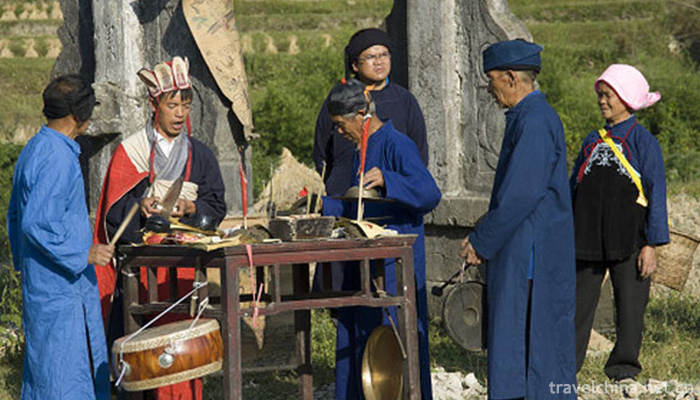
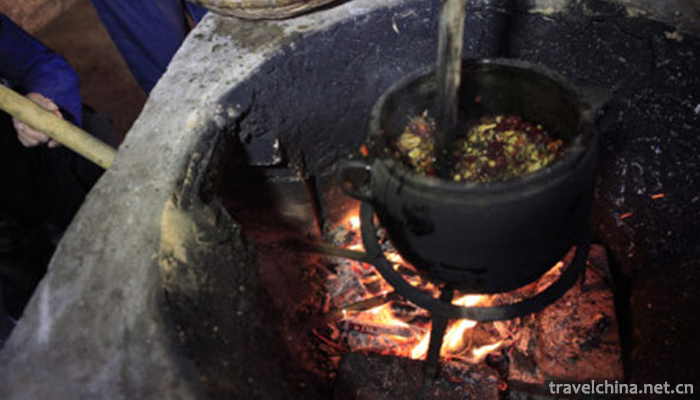
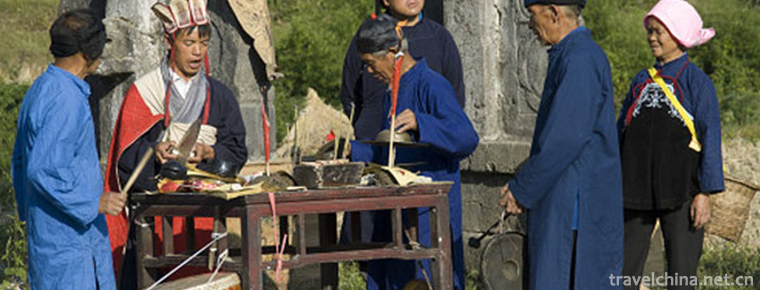
Production Techniques of Buyi Medical Herbs for Benefiting Liver
-
Qinghui Garden
Qinghui Garden is an ancient garden building built in Ming Dynasty. Located in Qinghui Road, Daliang Town, Shunde District, Foshan City, Guangdong Province,
Views: 224 Time 2019-02-07 -
suyukou national forest park
Suyukou National Forest Park is located in Helan Mountain National Nature Reserve, 50 kilometers northwest of Yinchuan City, capital of Ningxia. It is a national 4A-level tourist attraction.
Views: 183 Time 2019-02-13 -
Zhangye Great Buddhist Temple
The Great Buddha Temple was built in the first year of Yongan, Xia Dynasty (1098), formerly known as the Kaye Tathagata Temple, in the ninth year of Yongle, Ming Dynasty (1411), and in the seventeenth
Views: 263 Time 2019-03-16 -
High Density Gray Spring Festival Pictures
Gaomi gray-flushing New Year painting, also known as "folk freehand painting", is one of the national intangible cultural heritage of Gaomi folk traditional art in Shandong Province.
Views: 158 Time 2019-04-30 -
Construction Techniques of Luling Traditional Dwellings
The traditional wooden structure construction technique is an ancient traditional handicraft of the Han nationality. The traditional architecture of the Han nationality is a building system with woode
Views: 292 Time 2019-05-15 -
Maonan people beat monkey drum
"Monkey Drum Dance" is a traditional dance of Maonan nationality in Guizhou Province, which is used for funeral activities and performed by wizards. It is spread in some villages of Pingtang
Views: 104 Time 2019-05-26 -
Naxi Remei Biao
"Remei Biao" is also known as "Wo Yo Ye", which is a collective folk custom that has been spreading for thousands of years. There are more than ten people at least and hundreds of
Views: 219 Time 2019-06-07 -
Suzhou embroidery
Suzhou embroidery is the general name of embroidery products in Suzhou area. Its origin is in Wuxian, Suzhou. Now it has spread all over Wuxi, Changzhou and other places. Embroidery and silkworm reari
Views: 135 Time 2019-06-17 -
Yangjiabu woodcut New Year paintings
Yangjiabu wood engraving New Year's picture is a traditional folk engraving which is spread in Weifang City, Shandong Province. Its production method is simple, exquisite craft, bright color, rich con
Views: 136 Time 2019-07-11 -
Silk Bamboo in Yichang
Yichang silk bamboo, also known as "fine music", is the representative genre of folk instrumental music art in Yichang. It is mainly popular in Yaqueling and Longquan of Yiling District, and
Views: 153 Time 2019-07-12 -
Longtan Karst Cave Scenic Spot
Longtan Karst Cave Scenic Area is located at the foot of longcuban mountain, Miyi Baima Town, Panzhihua City, Sichuan Province, with an altitude of 1500 meters. It is a provincial-level scenic spot and a national AA level tourist area.
Views: 131 Time 2020-10-15 -
History of Nanchong
In the Northern Song Dynasty (960-1127), there were three states in the territory, which governed 13 counties, such as Nanchong (prefecture), Xichong and Xiangru, which were subordinate to Chengdu Fulu.
Views: 187 Time 2020-12-17
